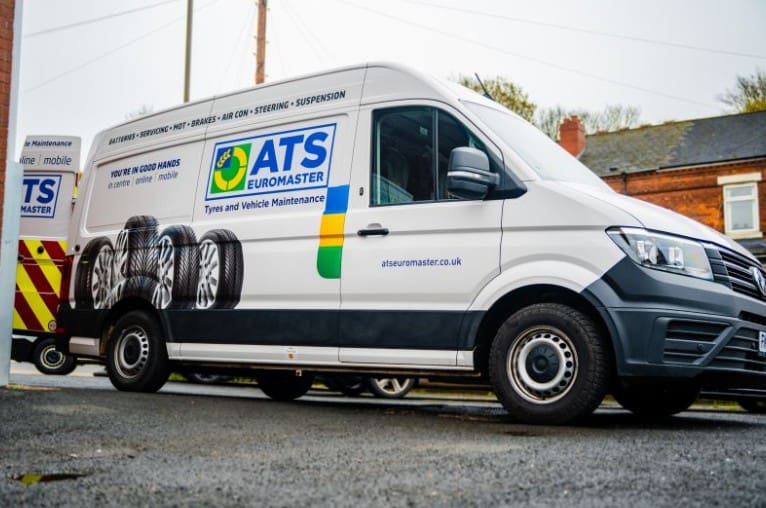- Shop All Documents + Bundles
- FORS V7.1 Document Bundle | Bronze (15 Policies)
- Transport Manager Compliance Pack (10 Policies)
- Transport Manager Compliance Pack (6 Policies)
- Health & Safety Policy Template
- Fuel, Emissions And Air Policy Template
- Operational Security Policy Template
- Serviceability And Roadworthiness Policy Template
- Road Traffic Collision Policy Template
- Counter Terrorism Policy Template
- Load Safety Policy Template
- Vehicle Routing And Scheduling Policy Template
- Driving Standards Policy Template
- Driving Hours Policy Template
- In Cab Technology Policy Template
- Passenger Safety Policy Template
- Complaints And Grievances Policy Template
- Drug And Alcohol Management Policy Template
- Hazard And Risk Identification Policy Template
- VOR (Vehicle Off Road) Policy Template
- Tyre + Wheel Policy Template
- Health & Eyesight Policy Template
- Transport Infringement Policy Template
- Walk Around Check (Defect Check) Tool Box Talk Template
- Transport Manager CV Template
- Social Media Policy Template
- Transport Manager Contract Template
- External Transport Manager Contract Template
- Driver Handbook
Driver CPC changes: overview of responses and government response

Driver CPC changes: overview of responses and government response
Following a review of the current CPC system, atotal of 1,190 consultation questionnaire responses were received, as well 16 position papers from industry stakeholders. The department also received 177 emails which were free text based on the proposals without answering the consultation questions directly. We would like to thank all respondents for their contribution.
Whilst there was a range of views, the principle of reforming DCPC was strongly supported. Furthermore, most respondents agreed with proposals for reforms to periodic training, e-learning, returning drivers, short term exemptions and extensions as well as electronic Driver Qualification Cards (DQCs). Views were also sought on proposals for a test option for periodic renewal.
Having considered these views, the government has decided DCPC will benefit from reforms to increase flexibility when renewing and regaining the qualification. To do this the government will:
- consult further on introducing a new periodic test as an alternative to 35 hours of training, for drivers looking to renew their DCPC – this would also be available for drivers looking to return to the sector and will form an accelerated return pathway for them
- reform training by reducing the minimum course length from 7 hours down to 3.5 hours
- decouple e-learning from trainer-led courses
- develop with the Driver and Vehicle Standards Agency (DVSA) more core course content and encourage informal assessment at the end of modules
Changes for training reforms will be brought into force through secondary legislation using powers within the Retained EU Law (Revocation and Reform) Act. The intention is to bring forward this secondary legislation to commence in summer 2024 but this will not include the introduction of the new periodic test. Proposals for periodic testing will be brought into force at a later point which could be via secondary legislation or further to a slot in an appropriate bill, and will be the subject of further consultation.
The Driver Certificate of Professional Competence (DCPC) was introduced in 2007, from the European Union Directive 2003/59/EC. This was transposed into domestic legislation by The Vehicle Drivers (Certificates of Professional Competence) Regulations 2007 (as amended), with DCPC coming in force from 2008 for passenger transport and 2009 for goods transport.
The DCPC is a qualification that professional drivers of certain goods or passenger carrying vehicles are required to hold in addition to their driving licence. In the United Kingdom (UK), except in the case where a driver had ‘acquired rights’, it is initially obtained by completing 4 modularised tests consisting of a 2-part theory test, case studies, a practical driving test and a practical demonstration of vehicle operation. DCPC is then renewed by completing 35 hours of periodic training every 5 years. Completing 35 hours of training allows a driver to drive for commercial purposes for 5 years.
The main objectives of DCPC, when introduced, were to improve road safety and the safety of the driver, including during operations carried out by the driver while the vehicle is stopped and to raise the professional recognition of drivers, thereby attracting greater interest in the profession and increasing the number of drivers.
Consultation activity
As a result of the acute driver shortages in 2021, the government announced a policy review into DCPC on 8 November 2021. The review sought to assess how the qualification could be reformed to reduce the burden on drivers and ensure it does not act as a barrier to working in the sector.
The outcome of this review, published on 2 March 2023, proposed ways in which the qualification could be reformed, which were put to public consultation also on 2 March 2023. The consultation was promoted through the department’s website, briefing mainstream media as well as trade press and through direct contact with potential consultees.
Two webinars and further stakeholder events were held during the consultation period with papers submitted by members from these latter events being considered as part of the review process. The events provided an opportunity to explain the proposals and explore aspects of them in depth.
Respondents to the consultation were asked to complete a survey, either online, or by downloadable form and sending to the department via email or post.
Summary of responses
A total of 1,190 consultation questionnaire responses were received. These came from a range of organisations and individuals. The breakdown of survey responses is shown within the following table by stakeholder group.
| Stakeholder group | No. Respondents | Percentage |
|---|---|---|
| Professional Driver | 753 | 63% |
| Operator | 161 | 14% |
| Trainer | 184 | 15% |
| Other | 92 | 8% |
| Total | 1,190 | 100% |
Among ‘professional drivers’, 607 respondents stated they were currently driving professionally and 146 that they had previously been professional drivers. ‘Operators’ are businesses employing either bus and coach or lorry drivers. Among operators, 40 respondents said they employ coach or bus drivers and 121 respondents that they employed lorry drivers. Amongst the ‘other’ group, 62 respondents stated they were other individuals, 18 that they were other types of organisation, 7 were industry representatives and 5 were road safety organisations.
Whilst the free text-based emails and position papers received have not been counted individually as part of the quantitative responses to the survey, they have been reviewed and considered as part of this response to the consultation.












